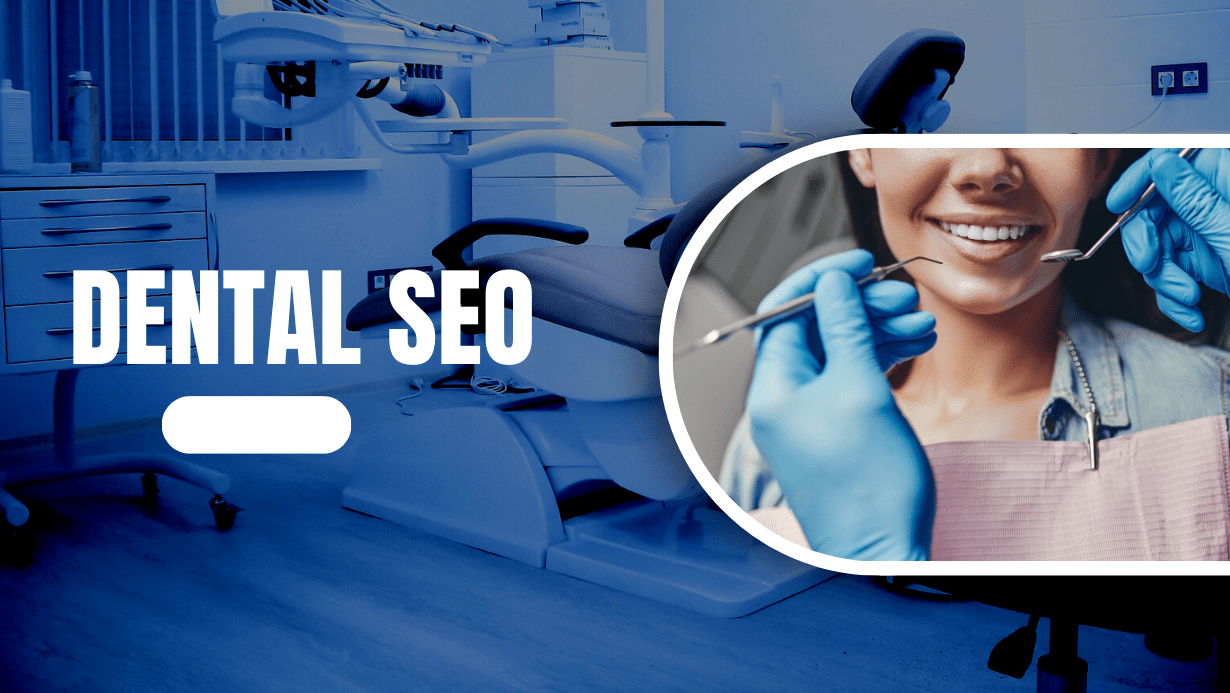SEO
Dental SEO: Boosting Your Online Presence for Dental Practices
Table 1: Outline of the Article
- Introduction to Dental SEO
- Importance of SEO for Dental Practices
- Understanding Dental Keywords
- On-Page Optimization Techniques
- Off-Page Optimization Strategies
- Building a User-Friendly Dental Website
- Creating High-Quality Dental Content
- Leveraging Social Media for Dental SEO
- Local SEO for Dental Practices
- Mobile Optimization for Dental Websites
- Measuring and Tracking SEO Success
- Common SEO Mistakes to Avoid
- Hiring an SEO Professional for Dental Practices
- The Future of Dental SEO
- Conclusion
Table 2: Article
Dental SEO: Boosting Your Online Presence for Dental Practices
The digital landscape has become a crucial platform for dental practices to connect with potential patients and expand their reach. In today’s competitive market, having a strong online presence is essential for attracting new patients and growing your dental business. This is where dental search engine optimization (SEO) comes into play. By implementing effective SEO strategies, you can improve your website’s visibility on search engine result pages (SERPs) and drive more organic traffic. In this article, we will explore the world of dental SEO and provide you with valuable insights on how to optimize your online presence for dental practices.
Importance of SEO for Dental Practices
In the era of the internet, people turn to search engines like Google when they need to find a local dentist or dental services. A robust SEO strategy ensures that your dental practice appears prominently in relevant search results, increasing the chances of attracting potential patients. By ranking higher in search engine results, you establish credibility and trust with your target audience.
Understanding Dental Keywords
Keywords play a vital role in dental SEO. These are the terms or phrases that users type into search engines when looking for dental services. Conducting thorough keyword research helps you identify the most relevant and valuable keywords for your dental practice. Focus on long-tail keywords that have lower competition but higher intent from potential patients. By strategically incorporating these keywords into your website’s content, meta tags, and headers, you can optimize your pages for search engines.
On-Page Optimization Techniques
On-page optimization involves optimizing the content and structure of your dental website to enhance its visibility in search results. This includes optimizing title tags, meta descriptions, headers (H1, H2, H3, H4), and URLs. Each page should have unique and descriptive meta tags, incorporating relevant keywords. Additionally, optimizing the website’s loading speed, mobile responsiveness, and user experience contribute to better rankings on search engines.
Off-Page Optimization Strategies
Off-page optimization refers to activities that take place outside of your dental website but still impact its online visibility. One of the most critical aspects is building high-quality backlinks from reputable dental websites, industry directories, and local listings. This helps search engines recognize your website’s authority and relevance. Engaging in guest blogging, social bookmarking, and social media marketing are other off-page strategies that can enhance your dental SEO efforts.
Building a User-Friendly Dental Website
A user-friendly website is key to engaging potential patients and encouraging them to explore your dental services further. Ensure your website has clear navigation, intuitive design, and informative content. Implementing click-to-call buttons, online appointment scheduling, and patient testimonials can greatly enhance the user experience. Remember to optimize your website for mobile devices, as a significant portion of online searches are performed on smartphones and tablets.
Creating High-Quality Dental Content
Content is the backbone of any successful SEO strategy. Generate informative and engaging dental content that addresses the questions and concerns of your target audience. Create blog posts, articles, and videos that offer valuable insights into dental health, oral hygiene, and various dental procedures. Incorporate relevant keywords naturally within the content and leverage internal linking to guide users to other relevant pages on your website.
Leveraging Social Media for Dental SEO
Social media platforms provide an excellent opportunity to engage with your audience, build brand awareness, and drive traffic to your dental website. Develop a social media strategy that aligns with your dental practice’s goals and target audience. Share informative posts, dental tips, patient success stories, and promotions to foster meaningful connections with your online community. Encourage patients to leave reviews and testimonials on social media platforms to boost your credibility.
Local SEO for Dental Practices
For dental practices targeting local patients, local SEO is paramount. Optimize your website for local search by including location-specific keywords and creating a Google My Business (GMB) profile. Ensure that your NAP (Name, Address, Phone number) details are consistent across all online directories and listings. Encourage patients to leave positive reviews on your GMB profile, as this can significantly impact your local search rankings.
Mobile Optimization for Dental Websites
With the rise in mobile device usage, optimizing your dental website for mobile is essential. Ensure that your website is responsive and loads quickly on smartphones and tablets. A mobile-friendly website provides a seamless user experience, reduces bounce rates, and improves your search engine rankings. Implement click-to-call buttons and mobile-friendly contact forms to facilitate easy communication with potential patients.
Measuring and Tracking SEO Success
To gauge the effectiveness of your dental SEO efforts, it’s crucial to track and analyze your website’s performance. Utilize tools like Google Analytics and Google Search Console to monitor key metrics such as organic traffic, keyword rankings, click-through rates, and conversion rates. Regularly analyze this data to identify areas for improvement and refine your SEO strategy accordingly.
Common SEO Mistakes to Avoid
While implementing dental SEO, it’s important to be aware of common mistakes that can hinder your progress. Avoid keyword stuffing, as it can lead to penalties from search engines. Don’t ignore website optimization for mobile devices, as this can result in a poor user experience. Neglecting the importance of high-quality backlinks and failing to update your website regularly are other pitfalls to avoid.
Hiring an SEO Professional for Dental Practices
Managing dental SEO can be complex and time-consuming, especially for busy dental practitioners. Consider hiring an experienced SEO professional who specializes in dental practices. They can analyze your website, develop a tailored SEO strategy, and execute various optimization techniques on your behalf, allowing you to focus on providing exceptional dental care.
The Future of Dental SEO
As technology continues to evolve, so will the field of dental SEO. Stay updated with the latest trends and algorithm changes to ensure that your dental practice remains at the forefront of online visibility. Voice search optimization, video marketing, and AI-powered chatbots are some emerging trends that can shape the future of dental SEO.
Conclusion
In today’s digital age, dental SEO plays a vital role in establishing a strong online presence for dental practices. By implementing effective SEO strategies, optimizing your website’s content and structure, and leveraging social media and local SEO, you can attract more patients and grow your dental business. Stay proactive, measure your SEO success, and adapt to the evolving landscape to ensure long-term online visibility and success for your dental practice.
Frequently Asked Questions (FAQs)
- How long does it take to see results from dental SEO efforts?
- Is dental SEO worth the investment for small dental practices?
- Can I do dental SEO on my own, or should I hire a professional?
- What are the key factors that influence dental SEO rankings?
- How can I integrate patient reviews into my dental SEO strategy?

